11 Best Herbal Tinctures For Tonsillitis
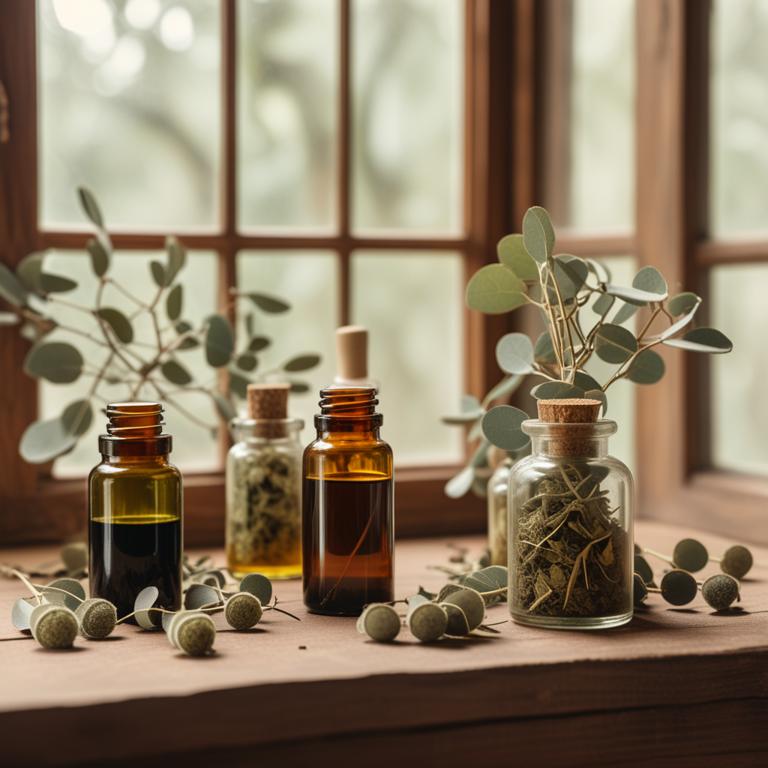
Herbal tinctures for Tonsillitis are concentrated liquid extracts derived from plants, used to treat the symptoms and infections associated with tonsillitis.
These herbal remedies offer numerous benefits, including reducing inflammation, fighting off bacterial infections, and providing relief from pain and discomfort.
Examples of herbal tinctures used to treat tonsillitis include Echinacea, which boosts the immune system to fight off infections, Sage, which has antibacterial properties to combat bacterial growth, and Licorice root, which soothes the throat and reduces inflammation.
Additionally, other herbal tinctures such as Slippery elm, Goldenseal, and Yarrow are also used to treat tonsillitis due to their anti-inflammatory and antimicrobial properties.
According to "Vestnik otorinolaringologii", tinctures for tonsillitis, specifically those made from Chelidonium majus L., have been shown to improve tonsillar function and reduce the number of recurrences.
Below there's a list of the 11 best herbal tinctures for tonsillitis.
- 1. Glycyrrhiza glabra tinctures
- 2. Eucalyptus globulus tinctures
- 3. Silybum marianum tinctures
- 4. Echinacea purpurea tinctures
- 5. Astragalus membranaceus tinctures
- 6. Mentha x piperita tinctures
- 7. Lavandula angustifolia tinctures
- 8. Sambucus nigra tinctures
- 9. Zingiber officinale tinctures
- 10. Hypericum perforatum tinctures
- 11. Achillea millefolium tinctures
Also you may be interested in...
TODAY'S FREE BOUNDLE
Herb Drying Checklist + Herbal Tea Shopping List + Medicinal Herbs Flashcards
Enter you best email address below to receive this bundle (3 product valued $19.95) for FREE + exclusive access to The Aphotecary Letter.
$19.95 -> $0.00
1. Glycyrrhiza glabra tinctures

Glycyrrhiza glabra tinctures, a herbal preparation derived from the licorice root, have been traditionally used to treat tonsillitis due to its anti-inflammatory and antibacterial properties.
The tannins and flavonoids present in this preparation help to reduce inflammation and fight off bacterial infections in the tonsils, thereby alleviating the symptoms of tonsillitis.
The bioactive constituents, such as glycyrrhizin and isoflavones, have been shown to exhibit immunomodulatory and antioxidant effects, which contribute to the healing process of the tonsils.
By using Glycyrrhiza glabra tinctures, individuals can benefit from reduced inflammation, rapid recovery, and a lower risk of complications associated with tonsillitis.
Related Study
According to "Journal of the Medical Association of Thailand = Chotmaihet thangphaet", Glycyrrhiza glabra tinctures showed strong antimicrobial activity against S. pyogenes ATCC 19615, S. pneumoniae ATCC 49619, and S. mutans ATCC 25175 with MIC and MBC values of 39 and 78 μg/ml, respectively.
2. Eucalyptus globulus tinctures
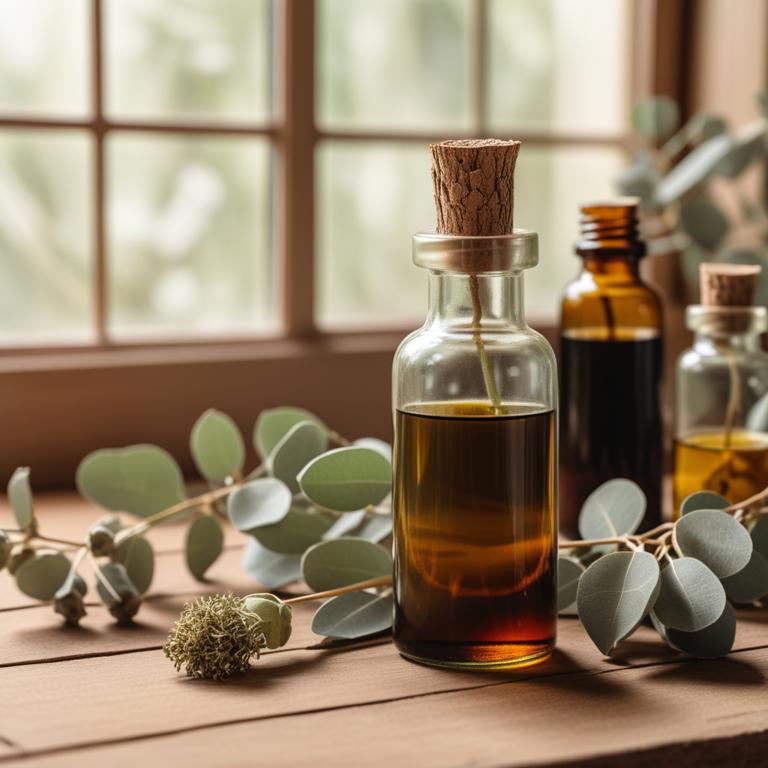
Eucalyptus globulus tinctures have been traditionally used to treat tonsillitis due to their anti-inflammatory and antimicrobial properties, which help to reduce inflammation and combat bacterial infections.
The bioactive constituents of Eucalyptus globulus, including eucalyptol, alpha-pinene, and limonene, possess antimicrobial and anti-inflammatory effects that aid in the treatment of tonsillitis.
By reducing inflammation and killing bacteria, Eucalyptus globulus tinctures help to alleviate symptoms such as pain, swelling, and difficulty swallowing associated with tonsillitis.
The benefits of using Eucalyptus globulus tinctures to treat tonsillitis include reduced risk of antibiotic resistance, fewer side effects compared to conventional medications, and a natural approach to managing the condition.
Related Study
According to "Evidence-based complementary and alternative medicine : eCAM", Eucalyptus globulus tinctures for tonsillitis may be effective, as Eucalyptus globulus is one of the top-cited plant species used in the treatment of respiratory tract infections, including cough, which is often associated with tonsillitis.
3. Silybum marianum tinctures
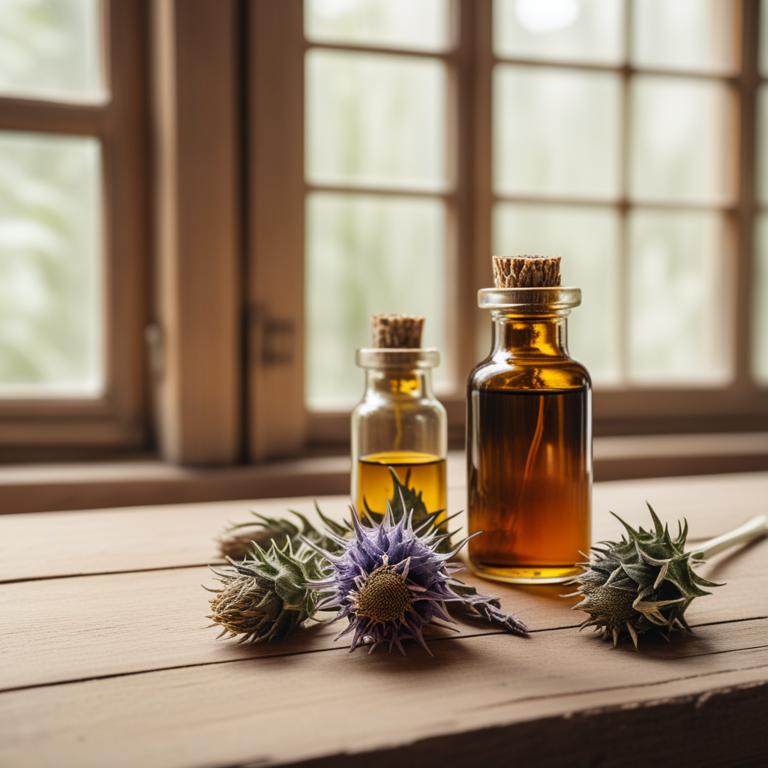
Silybum marianum tinctures, derived from the milk thistle plant, have been traditionally used to treat tonsillitis due to its anti-inflammatory and antimicrobial properties.
The tincture helps to reduce inflammation and pain associated with tonsillitis by inhibiting the production of pro-inflammatory cytokines and promoting the healing of the affected tissues.
The bioactive constituents of Silybum marianum, including flavonoids, silymarin, and silibinin, possess antioxidant and immunomodulatory activities that contribute to its therapeutic effects against tonsillitis.
The benefits of using Silybum marianum tinctures to treat tonsillitis include its ability to reduce the severity and duration of the illness, promote recovery, and prevent the development of complications such as abscesses or peritonsillar abscesses.
4. Echinacea purpurea tinctures

Echinacea purpurea tinctures have been traditionally used to treat tonsillitis, an inflammatory condition of the tonsils, due to their anti-inflammatory and antimicrobial properties.
The bioactive constituents of Echinacea purpurea, including alkylamides, caffeic acid derivatives, and polyphenols, help to reduce inflammation and combat bacterial infections that cause tonsillitis.
By modulating the immune system and promoting the production of cytokines, Echinacea purpurea tinctures aid in the resolution of tonsillitis symptoms, such as sore throat, fever, and difficulty swallowing.
The benefits of using Echinacea purpurea tinctures to treat tonsillitis include reduced risk of complications, accelerated recovery time, and a decrease in the need for antibiotics, making it a valuable natural remedy for this common ailment.
Related Study
According to "PeerJ", Echinacea purpurea tinctures may be beneficial for tonsillitis as they exhibited an anti-inflammatory effect in human tonsil epithelial cells by reducing the secretion of pro-inflammatory cytokines.
5. Astragalus membranaceus tinctures
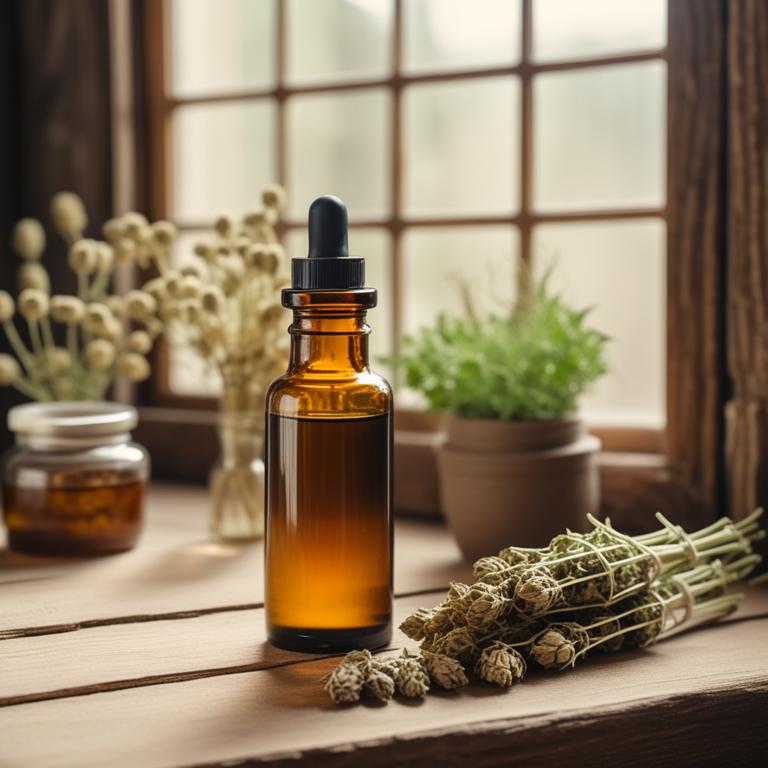
Astragalus membranaceus tinctures have been traditionally used to treat tonsillitis, a bacterial or viral infection of the tonsils, due to its immunomodulatory, anti-inflammatory, and antimicrobial properties.
The bioactive constituents present in Astragalus membranaceus tinctures, including flavonoids, saponins, and polysaccharides, help to modulate the immune system and reduce inflammation, thereby alleviating the symptoms of tonsillitis.
Astragalus membranaceus tinctures also exhibit antibacterial and antiviral activities, which help to combat the underlying infection causing tonsillitis.
The use of Astragalus membranaceus tinctures may provide relief from tonsillitis symptoms, such as sore throat, fever, and difficulty swallowing, and may also help to reduce the risk of complications and promote overall recovery.
6. Mentha x piperita tinctures
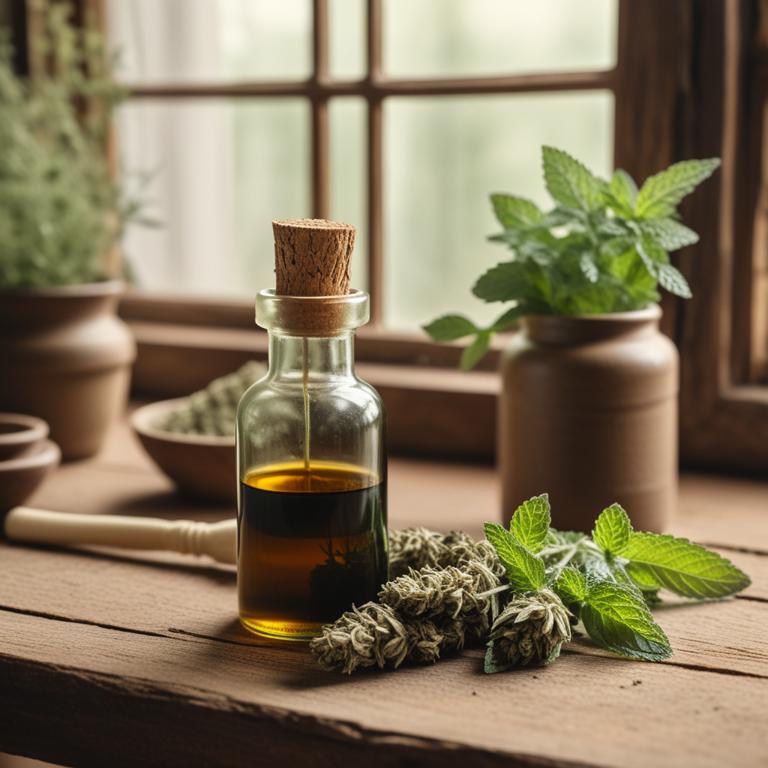
Mentha x piperita tinctures, derived from the peppermint plant, have been traditionally used to treat tonsillitis due to their anti-inflammatory and antimicrobial properties.
The bioactive constituents, including menthone, menthol, and limonene, help to reduce inflammation and combat bacterial infections in the throat, thereby alleviating the symptoms of tonsillitis.
By modulating the body's immune response and reducing oxidative stress, Mentha x piperita tinctures promote a favorable environment for healing and recovery.
The benefits of using these tinctures to treat tonsillitis include reduced pain and discomfort, accelerated recovery, and a decreased risk of complications.
7. Lavandula angustifolia tinctures
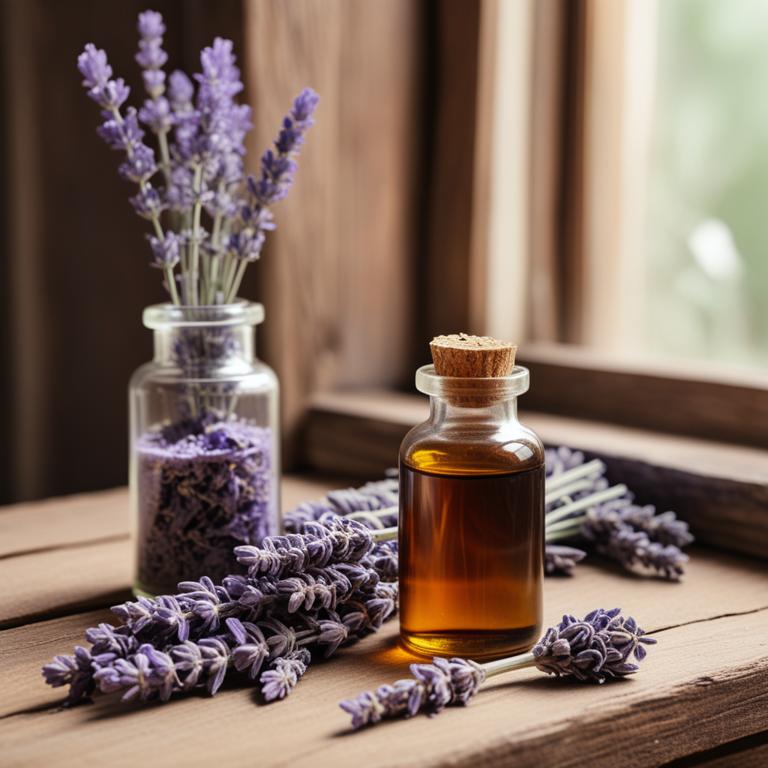
Lavandula angustifolia tinctures, derived from the leaves and flowers of the lavender plant, have been traditionally used to treat tonsillitis due to their antimicrobial and anti-inflammatory properties.
The bioactive constituents of this herbal preparation, including linalool and linalyl acetate, help to reduce inflammation and combat bacterial infections that cause tonsillitis.
By using Lavandula angustifolia tinctures, individuals can benefit from reduced swelling and pain, as well as a lower risk of complications such as abscesses and scar tissue.
The benefits of treating tonsillitis with Lavandula angustifolia tinctures include a faster recovery time, reduced need for antibiotics, and a natural approach to managing symptoms.
8. Sambucus nigra tinctures
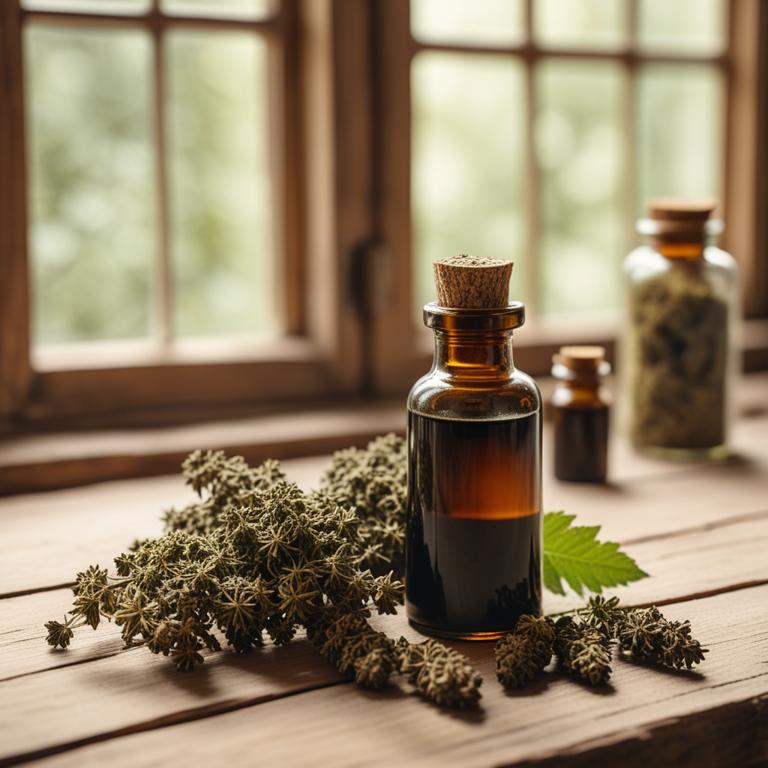
Sambucus nigra tinctures have been traditionally used to treat tonsillitis due to their anti-inflammatory and antimicrobial properties, which help to reduce swelling and combat bacterial and viral infections.
The bioactive constituents, such as flavonoids, anthocyanins, and phenolic acids, found in Sambucus nigra tinctures possess antioxidant and immunomodulatory effects that aid in the treatment of tonsillitis.
These properties help to soothe the throat, reduce pain and inflammation, and promote the recovery of the affected area.
Regular use of Sambucus nigra tinctures has been shown to provide relief from tonsillitis symptoms and reduce the risk of complications associated with this condition.
9. Zingiber officinale tinctures

Zingiber officinale tinctures, derived from the rhizome of the ginger plant, have been traditionally used to treat tonsillitis due to their anti-inflammatory, antimicrobial, and analgesic properties.
The bioactive constituents of Zingiber officinale, including gingerols and shogaols, have been shown to inhibit the growth of bacteria and viruses, helping to alleviate the symptoms of tonsillitis, such as pain, swelling, and fever.
The tinctures of Zingiber officinale help to treat tonsillitis by reducing inflammation and promoting healing of the tonsils, thereby alleviating the discomfort and pain associated with the condition.
The benefits of using Zingiber officinale tinctures to treat tonsillitis include reduced risk of complications, faster recovery, and a decrease in the use of antibiotics, making it a promising natural remedy for this common ailment.
Related Study
According to "PeerJ", Zingiber officinale tinctures for tonsillitis showed significant inhibition of pro-inflammatory cytokine production as induced by bacterial antigens in human tonsil epithelial cells, indicating a potential anti-inflammatory effect in managing streptococcal pharyngitis.
10. Hypericum perforatum tinctures
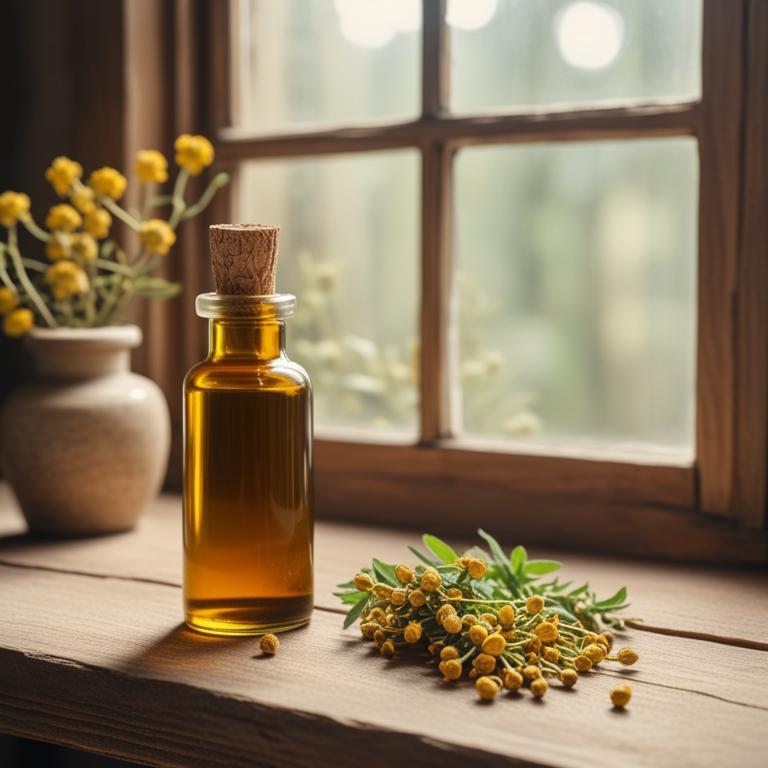
Hypericum perforatum tinctures, also known as St. John's Wort, have been traditionally used to treat various health conditions, including tonsillitis.
The anti-inflammatory and antiseptic properties of this herbal preparation help to reduce swelling and fight bacterial infections in the throat, thereby alleviating symptoms of tonsillitis.
The bioactive constituents of Hypericum perforatum, such as hyperforin and hypericin, have been found to possess antimicrobial and antiviral properties that contribute to its therapeutic effects in treating tonsillitis.
By using Hypericum perforatum tinctures, individuals can benefit from its natural anti-inflammatory and antimicrobial properties, which can help to alleviate symptoms of tonsillitis and promote faster recovery.
Related Study
According to "BMC veterinary research", Hypericum perforatum tinctures may not be specifically mentioned for treating tonsillitis in the provided study, however, the study mentions that Hypericum perforatum (St. John's Wort) shows a broad spectrum of antibacterial and antifungal effects, which could potentially aid in treating infections, including tonsillitis.
11. Achillea millefolium tinctures
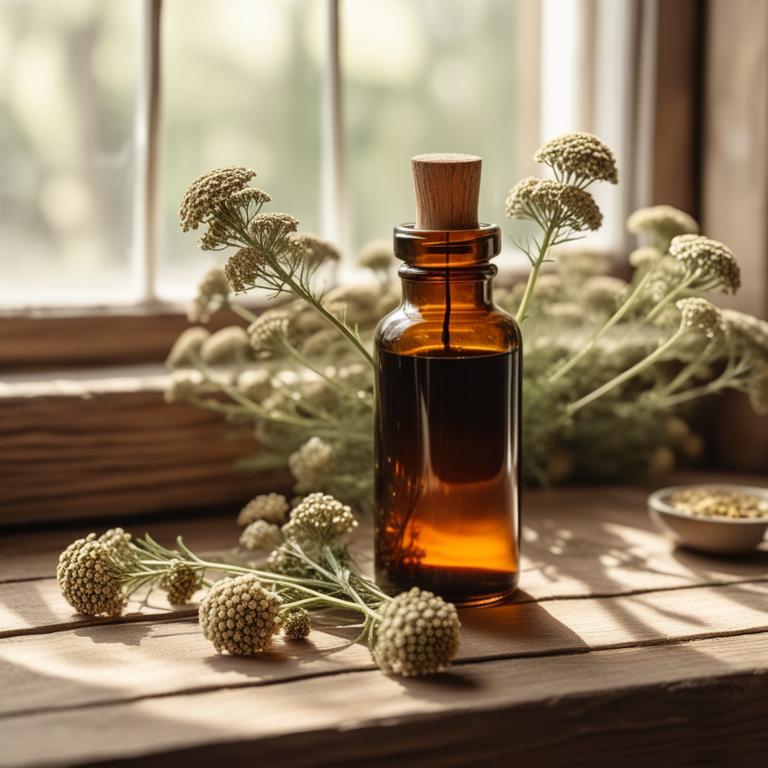
Achillea millefolium tinctures have been traditionally used to treat tonsillitis due to their anti-inflammatory and antimicrobial properties, which help to reduce swelling and combat bacterial infections.
The bioactive constituents, including sesquiterpene lactones, flavonoids, and phenolic acids, contribute to its therapeutic effects by inhibiting the growth of pathogenic bacteria and modulating the immune response.
By using Achillea millefolium tinctures, individuals may experience relief from symptoms such as sore throats, fever, and difficulty swallowing, as the herbal preparation helps to reduce inflammation and promote healing.
The benefits of using Achillea millefolium tinctures for tonsillitis include reduced risk of complications, accelerated recovery, and a natural alternative to conventional antibiotics.